Galloway Viking treasure pot's contents revealed after more than 1,000 years
- Published
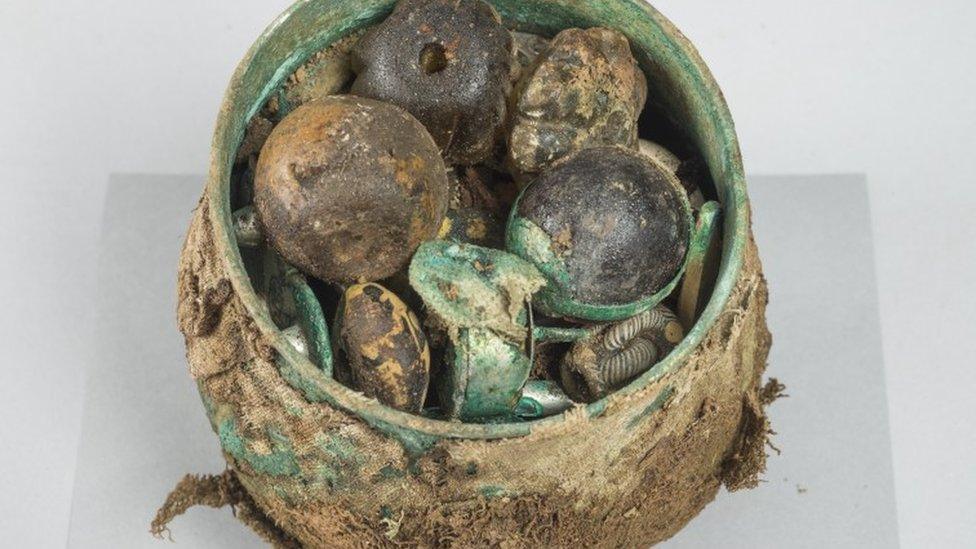
The images lift the lid on what was kept in the Viking treasure pot
Conservators have released images of the contents of a pot of Viking treasure more than 1,000 years after it was buried in a field in Galloway.
Items inside include six silver Anglo-Saxon disc brooches, a gold ingot and Byzantium silk.
The pictures give the public a chance to see the items for the first time as they are not currently on display.
It follows a painstaking project to remove and conserve the items which date from the 9th to 10th century AD.
The hoard was discovered by metal detectorist Derek McLennan in Dumfries and Galloway in 2014.
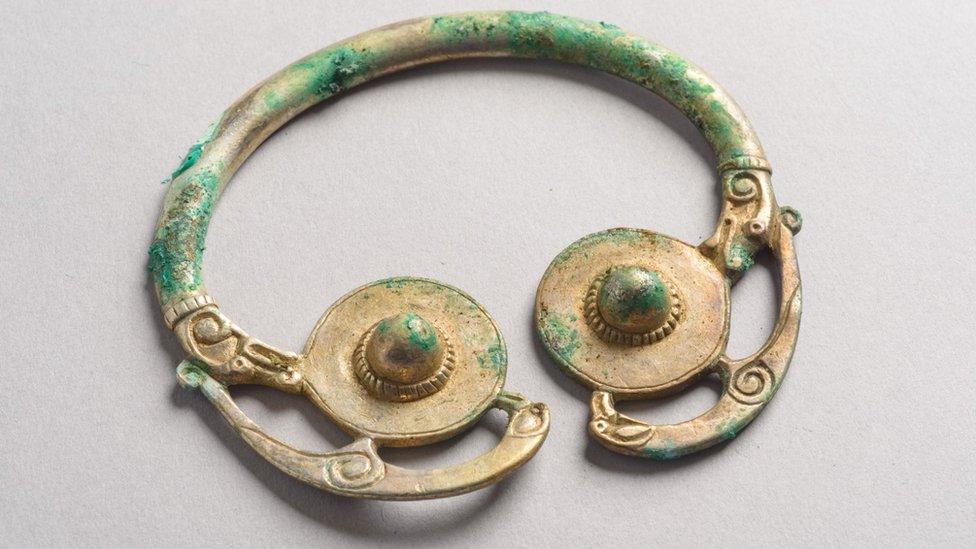
A silver brooch from Ireland was among the items taken out of the pot
The images show a cache of objects contained in a Carolingian pot which was part of the wider hoard.
Items in the pot included:
six silver Anglo-Saxon disc brooches
a silver brooch from Ireland
Byzantium silk from around modern-day Istanbul
a gold ingot
gold and crystal objects carefully wrapped in cloth bundles
The conservation project is being funded by Historic Environment Scotland, working in partnership with the Treasure Trove Unit, and the Queen's and Lord Treasurer's Remembrancer (QLTR).
Richard Welander, of Historic Environment Scotland, said: "Before removing the objects we took the rather unusual measure of having the pot CT scanned, in order that we could get a rough idea of what was in there and best plan the delicate extraction process.
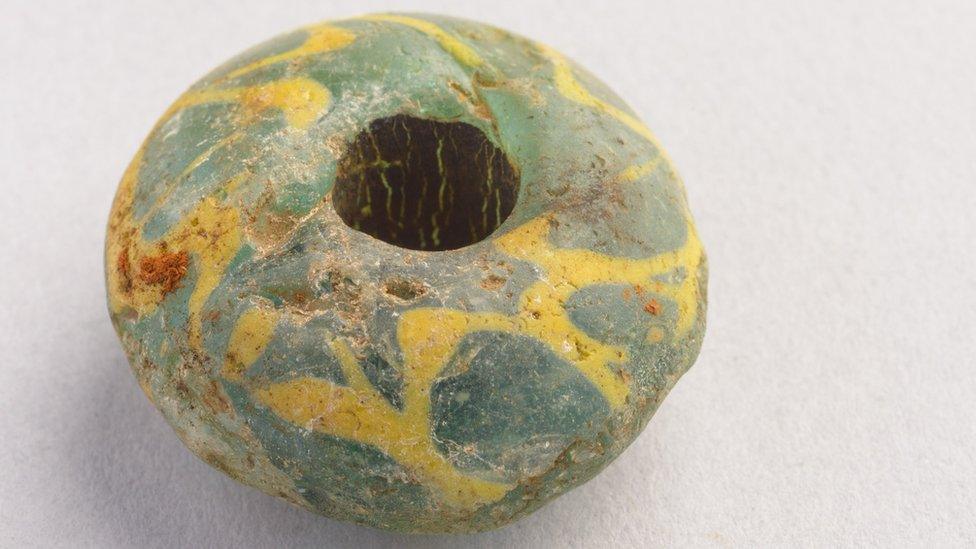
This large glass bead was also discovered among the Viking treasure
"That exercise offered us a tantalising glimpse but didn't prepare me for what was to come.
"These stunning objects provide us with an unparalleled insight to what was going on in the minds of the Vikings in Galloway all those years ago.
"They tell us about the sensibilities of the time, reveal displays of regal rivalries, and some of the objects even betray an underlying sense of humour, which the Vikings aren't always renowned for!"
Stuart Campbell of the Treasure Trove Unit, said there was further research to be done on the items.
"The complexity of the material in the hoard raises more questions than it answers, and like all the best archaeology, this find doesn't give any easy answers," he said.
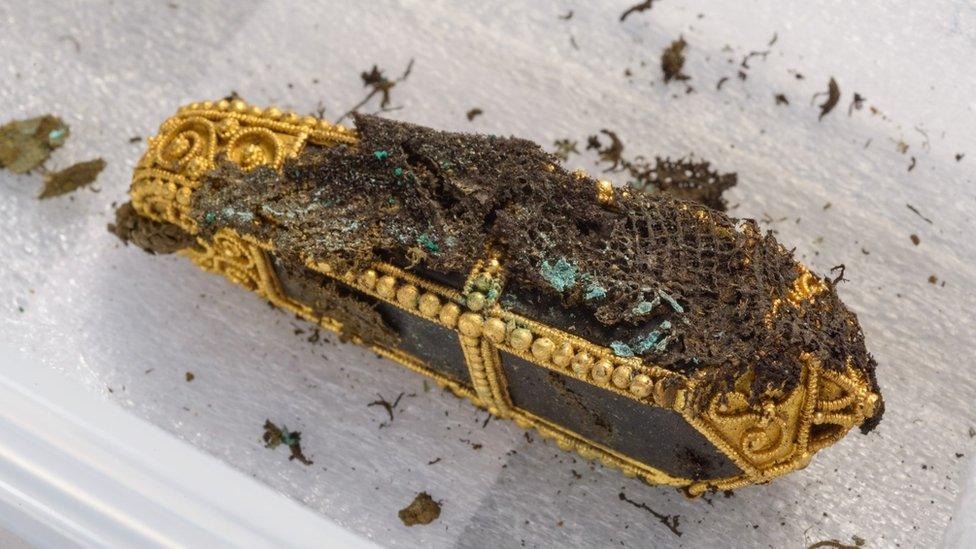
A pendant was also part of the hoard unearthed in Galloway in 2014
"Questions about the motivations and cultural identity of the individuals who buried it will occupy scholars and researchers for years to come."
The vessel contents are now with the Treasure Trove Unit, who are responsible for assessing the value of the hoard on behalf of the QLTR.
The hoard will then be offered for allocation to Scottish museums, with the finder eligible for the market value of the find - a cost that will be met by the successful museum.
Dumfries and Galloway Council is working up a bid to give it a permanent home in Kirkcudbright.
However, it has been estimated it might need up to £1m in order to do so.
The hoard's discovery is also set to feature in the latest episode of Digging for Britain hosted by Dr Alice Roberts.
The programme is broadcast on BBC Four at 21:00 on Thursday 24 March.
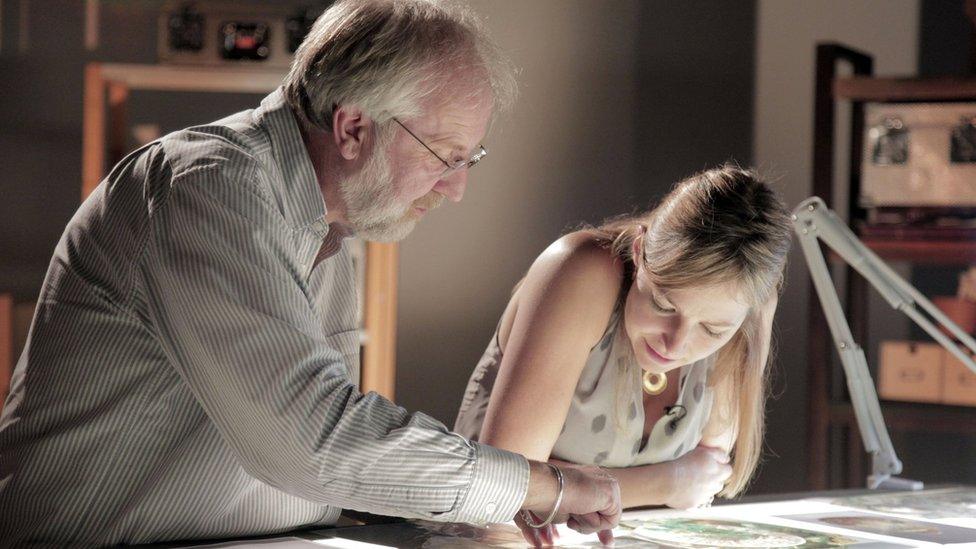
The Galloway hoard is to feature on Digging for Britain
- Published6 October 2015
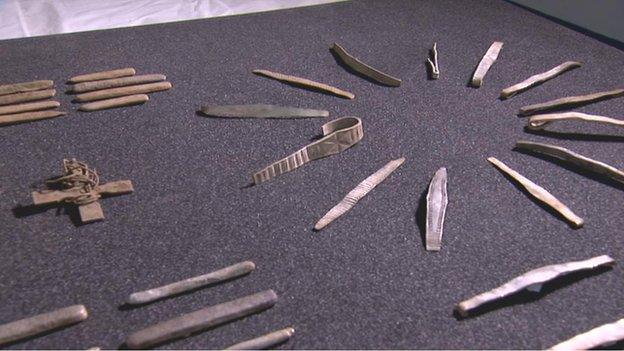
- Published7 July 2015

- Published10 June 2015

- Published12 October 2014
